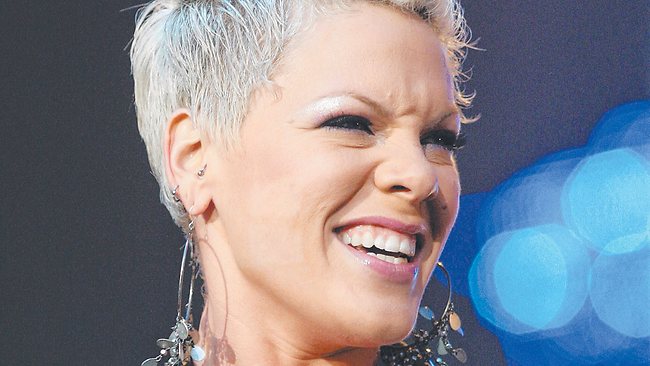Gall Bladder 101: The need to know
WHAT does this organ do and can you do without it?

WHAT does this organ do and can you do without it?
Pink recently tweeted a picture of herself in a hospital bed after an operation to remove her gall bladder. It was a surprise surgery after the singer was admitted with suspected stomach flu.
Gall-bladder removal is one of the most widely performed surgeries in Australia, with about 18,000 a year.
> > A female problem
Women are two to three times more likely to have gallstones than men and these are what create the painful symptoms that often require keyhole surgery to remove the gall bladder.
The more children a woman has, the greater her risk, and being overweight also has an impact. "The incidence of gallstones goes up as your BMI goes up," says Dr Tony Speer, gastroenterologist at the Royal Melbourne Hospital.
> > Gall bladder function
The gall bladder is six to 15 centimetres long and sits under the liver. Its job is to store and concentrate bile produced by the liver on its way to the intestines.
"After eating, the gall bladder contracts and empties bile into the intestine, where it mixes with food and helps digest fat," Speer says.
Gallstones are pebble-like substances which form when bile hardens in the gall bladder, due to an imbalance in the bile's components.
> > Signs of a problem
In 80 per cent of people with gallstones, the stones don't create any problems. But issues occur when a stone or stones get stuck at the neck of the gall bladder.
This leads to sharp pain under the right ribs that can radiate to the back and shoulders. The pain may resolve after a few hours but can recur.
In more serious situations, the blockage leads to acute infection and antibiotics and gall-bladder removal is usually recommended.
Some medications dissolve stones but these are not suitable if the gall bladder is already scarred or if there are lots of stones. "It can take up to two years to dissolve stones, so if you have frequent pain it's not an option. Stones also come back for 50 to 60 per cent of people when they stop the treatment," Speer says.
> > Can you live without it?
"Removing the gall bladder means that bile is continuously dripped into your intestine at a slow rate because there is nowhere to store it," Speer says. "But there aren't too many consequences from removing it."
Beating gallstones:
+ Don't smoke.
+ Thirty minutes of exercise five times a week can reduce the risk of gallstones by 34 per cent.
+ Eat a balanced diet with plenty of vegetables.
+ A cup of coffee per day can cut the risk.

